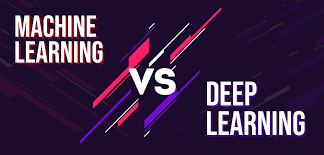What is artificial intelligence (AI)?
Introduction to Artificial Intelligence (AI)
Welcome to the fascinating world of Artificial Intelligence (AI) – where machines are not just programmed, they learn and adapt on their own. Imagine a future where computers can think, reason, and make decisions like humans. Sounds like something out of a sci-fi movie, right? Well, AI is very much a reality today and is revolutionizing industries across the globe. Let’s dive in to explore what AI really is and how it’s shaping our world!
History of AI
The history of artificial intelligence dates back to the 1950s when the term was first coined at a conference in Dartmouth College. Early AI pioneers like Alan Turing and John McCarthy laid the foundation for what would become a groundbreaking field in technology.
Throughout the decades, AI research experienced periods of rapid progress and setbacks. In the 1980s, expert systems and neural networks gained popularity, leading to advancements in areas such as speech recognition and image processing.
As computing power increased, so did the capabilities of AI systems. The development of machine learning algorithms enabled computers to learn from data without being explicitly programmed, revolutionizing industries like healthcare, finance, and transportation.
Today, AI is integrated into our daily lives through virtual assistants, recommendation systems, autonomous vehicles, and more. The journey of artificial intelligence continues to evolve as researchers push boundaries and explore new possibilities for its application in various fields.
Different Types of AI
When it comes to artificial intelligence (AI), there are different types that serve various purposes and functions. One type is Narrow AI, which is designed for a specific task like facial recognition or language translation. This type of AI operates within a limited context and cannot perform tasks outside of its programmed capabilities.
On the other hand, we have General AI, also known as Strong AI, which possesses human-like cognitive abilities and can understand, learn, and apply knowledge across different domains. However, achieving this level of AI remains a challenge due to its complexity.
Another type is Artificial Superintelligence (ASI), which surpasses human intelligence in all aspects. ASI has the potential to outperform humans in every intellectual task and could lead to groundbreaking advancements or pose significant risks if not controlled properly.
Understanding these different types of AI helps us grasp the diverse range of capabilities they offer and their respective implications on society as technology continues to advance rapidly.
Applications of AI
Artificial Intelligence (AI) has revolutionized various industries with its wide range of applications. In healthcare, AI is used for diagnosing diseases, personalized treatment plans, and drug discovery. It helps doctors make more accurate decisions and improves patient outcomes.
In the transportation sector, AI powers self-driving cars by analyzing data from sensors to navigate roads safely. This technology aims to reduce accidents and enhance mobility for people worldwide. Additionally, AI plays a crucial role in optimizing supply chain management by predicting demand patterns and streamlining logistics operations efficiently.
In the field of finance, AI algorithms are employed for fraud detection, risk assessment, and trading strategies. These tools enable financial institutions to detect suspicious activities in real-time and make informed decisions based on market trends. Moreover, AI enhances customer service through chatbots that provide instant support and personalized recommendations based on user preferences.
Benefits and Limitations of AI
Artificial intelligence (AI) has revolutionized various industries, offering a wide array of benefits. One major advantage is increased efficiency and productivity. AI-powered systems can perform tasks at a much faster pace than humans, leading to time and cost savings for businesses. Additionally, AI can analyze vast amounts of data quickly and accurately, providing valuable insights that aid in decision-making processes.
On the other hand, there are limitations to consider when it comes to AI. One significant drawback is the potential for bias in algorithms. If not developed and monitored carefully, AI systems can perpetuate existing biases present in the data used to train them. Another concern is job displacement – as AI technology advances, some traditional jobs may become obsolete.
Despite these limitations, the benefits of AI cannot be ignored. It has the potential to transform industries and improve our daily lives in ways we never thought possible.
The Future of AI
The future of artificial intelligence (AI) holds endless possibilities and potential. As technology continues to advance rapidly, AI is poised to revolutionize various industries and aspects of our daily lives. From healthcare to finance, education to transportation, AI will continue to play a crucial role in streamlining processes and improving efficiencies.
One exciting aspect of the future of AI is its ability to enhance personalized experiences for users. With advanced algorithms and machine learning capabilities, AI can analyze vast amounts of data to tailor recommendations and services specifically to individual preferences.
Furthermore, the integration of AI with other emerging technologies like Internet of Things (IoT) and robotics opens up new avenues for innovation. This convergence enables smart devices to communicate seamlessly with each other, creating interconnected systems that offer unparalleled convenience and automation.
As we look ahead, it’s clear that the rapid evolution of AI will bring about both challenges and opportunities. It’s essential for researchers, developers, policymakers, and society as a whole to navigate this evolving landscape thoughtfully and responsibly. Embracing the potential benefits while addressing ethical considerations will be key in shaping a future where AI serves humanity positively.
Ethical Considerations in AI Development
Ethical considerations in AI development are crucial as technology continues to advance at a rapid pace. One major concern is the potential for bias in AI algorithms, which can perpetuate discrimination and inequality. Developers must ensure that their AI systems are fair and unbiased, taking into account diverse perspectives and experiences.
Privacy is another key ethical issue in AI development. As machines become more intelligent, there is a risk of infringing on individuals’ privacy rights through data collection and surveillance. It’s essential to establish clear guidelines on data protection and transparency to safeguard users’ personal information.
Moreover, the impact of AI on employment raises ethical questions about job displacement and economic inequality. Developers need to consider how automation will affect various industries and workforces, implementing strategies to mitigate negative consequences.
Navigating the ethical complexities of AI development requires thoughtful consideration and proactive measures to uphold moral standards in this rapidly evolving field.
Conclusion
After diving into the world of artificial intelligence, it’s clear that AI is a powerful technology with vast potential to revolutionize industries and transform our daily lives. From its humble beginnings to the sophisticated systems we see today, AI has come a long way in a relatively short amount of time.
As we look ahead to the future of AI, there is no doubt that this technology will continue to evolve and shape the world around us. With ongoing advancements in machine learning, deep learning, and neural networks, we can expect AI to become even more integrated into various aspects of society.
However, as we embrace the benefits of AI, it’s crucial to also consider the ethical implications involved in its development and deployment. Ensuring that AI technologies are used responsibly and ethically should be at the forefront of discussions surrounding this rapidly advancing field.
While there are certainly challenges and considerations to keep in mind when it comes to artificial intelligence, one thing remains certain – AI has the potential to drive innovation, enhance efficiency, and ultimately improve our quality of life in ways we have yet to fully comprehend.






